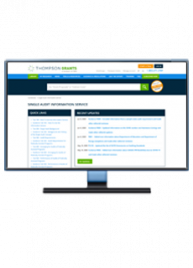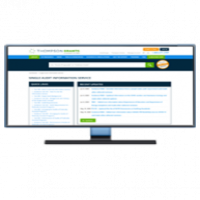Sneak Preview: Homeowners Assistance Fund Guidance Now Updated

(The following was excerpted from a recent Thompson Grants Compliance Expert article.) The Department of the Treasury recently updated its guidance for the Homeowners Assistance Fund (HAF) program, providing more details to recipients about the reimbursement of certain types of allowable assistance — deemed “qualified expenses” — under the program.
Authorized under section 3206 of the American Rescue Plan Act (Pub. L. 117-2), the HAF program aims to ease the financial hardships associated with the COVID-19 pandemic by providing some $9.96 billion in funding to state and local governments, U.S. territories and tribes to prevent homeowner mortgage delinquencies, defaults, foreclosures, loss of utilities or home energy services, and displacements of homeowners experiencing financial hardship after Jan. 21, 2020.
Treasury initially issued guidance for the HAF program on April 14, 2021, and has since updated it three times.
HAF recipients may provide assistance to homeowners that experienced a financial hardship after Jan. 21, 2020, as well as a hardship prior to that date that continued after Jan. 21, 2020, and have incomes equal to or less than 150% of the area median income or 100% of the U.S. median income, whichever is greater.
According to the updated guidance, HAF recipients may use program funding only for the following types of qualified expenses:
- mortgage payment assistance;
- financial assistance to allow a homeowner to reinstate a mortgage or to pay other housing-related costs related to a period of forbearance, delinquency or default;
- mortgage principal reduction, including with respect to a second mortgage provided by a nonprofit or government entity;
- facilitating mortgage interest rate reductions;
- payment assistance for: (1) homeowner’s utilities, including electric, gas, home energy (including firewood and home heating oil), water and wastewater; (2) homeowner’s internet service, including broadband; (3) homeowner’s, flood and mortgage insurances; (4) homeowner’s association fees or liens, condominium association fees or common charges, and similar costs payable under a unit occupancy agreement by a resident member/shareholder in a cooperative housing development; and (5) down-payment assistance loans provided by nonprofit or government entities;
- payment assistance for delinquent property taxes to prevent homeowner tax foreclosures;
- measures to prevent homeowner displacement, such as home repairs to maintain the habitability of a home, including the reasonable addition of habitable space to alleviate overcrowding, or assistance to enable households to receive clear title to their properties;
- counseling or educational efforts by housing counseling agencies approved by the Department of Housing and Urban Development or a tribal government, or legal services targeted to households eligible to be served with HAF funding related to foreclosure prevention or displacement, in an aggregate amount up to 5% of the recipient’s HAF funding;
- reimbursement of funds expended for a qualified expense by the recipient during the period beginning on Jan. 21, 2020, and ending on the date that the first funds are disbursed by the HAF recipient;
- planning, community engagement, needs assessment and administrative expenses related to the HAF recipient’s disbursement of HAF funds for qualified expenses, in an aggregate amount not to exceed 15% of the recipient’s HAF funding;
- payment of lot rent for a manufactured home, where such payment would promote housing stability and prevent the default of the resident; and
- reimbursement of funds the recipient spent during the period beginning on the date it obtained its initial HAF payment and ending on the date it received the balance of funds requested in its HAF plan for a qualified expense consistent with its approved plan.
If a contractor both plays an administrative role and provides housing counseling or other services, a recipient must allocate costs based on each such activity, Treasury added.
(The full version of this story has now been made available to all for a limited time here.)
Join us for our following Thompson Grants events:
Federal Grants Forum For Institutions of Higher Education | Sept. 28-29, 2022 | Virtual Event
Advanced Federal Grants Forum | Oct. 25-27, 2022 | Phoenix, Ariz.



